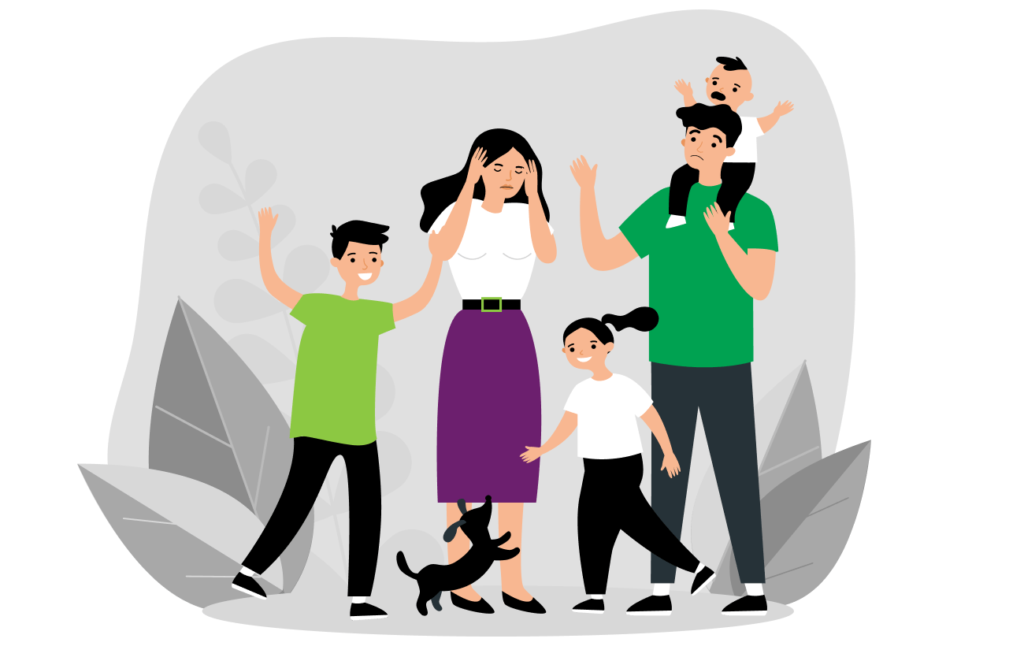Postpartum Depression and the Baby Blues: What’s the Difference?

For many families, the birth of a child is a time of happiness and excitement. However, many parents struggle with the “baby blues” or, the more serious, postpartum depression.
It’s important to recognize the signs and symptoms of each, so you can get the proper treatment and support. It’s also important to understand that you are not alone. One in eight women experience symptoms of postpartum depression, according to the Centers for Disease Control and Prevention (CDC). So how do you know if what you’re feeling is postpartum depression?
Baby Blues – more common than not.
About 4 in 5 new parents (80 percent) experience the “baby blues,” according to March of Dimes. They may experience:
- moodiness
- depression
- anxiety
- irritability
- fatigue
These common feelings – sometimes attributed to after-delivery hormonal changes – typically last only a few days and are gone within two weeks of the birth.

Postpartum Depression – identification and treatment are key.
According to the CDC, 1 in 8 women experience symptoms of “postpartum depression,” a more serious form of depression that may develop several weeks, months, or even into the first year after childbirth.
Women with postpartum depression may experience:
- extreme sadness or anger
- crying more often than usual
- feelings of guilt, hopelessness, worthlessness
- difficulty concentrating
- fatigue
- changes in eating habits
- feeling disconnected from baby
- inability to sleep
In some circumstances, fear of harming the baby, and suicidal thoughts can occur. It’s also possible for new fathers to experience postpartum depression. Left untreated, postpartum depression can last for over a year and can be quite disruptive to the family. Fortunately, treatments options are available.
What causes postpartum depression?
Postpartum depression may be the result of many factors. Evidence suggests that changes in hormones— estrogen, progesterone, thyroid—are involved. Complications during labor and delivery, having a preterm birth, stress and lack of emotional support may also contribute.
Additional risk factors include:
- a personal or family history of depression or mood disorders
- marital problems
- unemployment of the mother or her partner
- stressful life events

What should you do if you think you are suffering from postpartum depression?
First, let your doctor know what you’ve been experiencing. Once your doctor is aware, he or she can help you determine the best form of support or treatment. This may include counseling from the physician or a mental health professional, involvement in a postpartum depression support group, medication, or a combination of these approaches.
Confidential, convenient resources are available to you.
If you would like to talk with a counselor about any concerns, call the CDPHP Behavioral Health Access Center at (518) 641-3600 or visit the behavioral health webpage for more information. We will provide you with a confidential referral to a specialist in your community.
The following types of services are available through CDPHP as needed to help eligible members cope with mental health, emotional, and chemical dependency issues:
- Acute inpatient care
- Medication management
- Group therapy
- Individual outpatient therapy
- Case management
- Follow-up services
CDPHP has also teamed up with Ovia Health* behavioral health experts to provide additional support if you’re experiencing symptoms of postpartum depression.
Stay connected – to others and to yourself.
Remember to draw upon the support of family, friends, and other support groups. During the baby’s first year, tune into your feelings. Be alert to signs of depression, anxiety, or stress. Discuss these symptoms with your medical provider as they can help get you to get back on track.
And remember, if you are experiencing postpartum depression symptoms, you are not alone! There is nothing to be ashamed or embarrassed of if you’re feeling anxious or depressed following the birth of your child.
*The Ovia Health apps (Ovia and Ovia Parenting) are available at no-cost through the Apple and Android app store. Eligible CDPHP members also have access to premium features such as the Ovia Care Team, which can be accessed selecting that you have Ovia Health as a benefit during signup and entering CDPHP. Learn more about Ovia Health.
 The Daily Dose
The Daily Dose
Comments are closed.